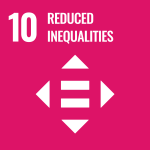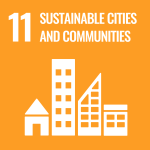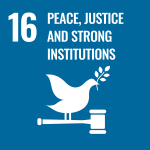


GEN1000 for students admitted to Year 1 before AY2025/26, Year 2 before AY2026/27, or Year 3 before AY2027/28, except with the permission of the Module Coordinator
Nil
This module explores the impact of globalisation on cultural diversity within sports, examining how global forces shape sporting practices across different cultures. Students will evaluate mega sports events, such as the Olympics, focusing on their role in showcasing cultural exchange and negotiating global and local identities.
Additionally, the module examines the cultural significance of sports rituals and traditions, assessing their implications for identity formation and community building in diverse societies. Students will develop a global awareness and explore strategies for promoting culturally sensitive and inclusive practices, highlighting the roles of various stakeholders in fostering a more equitable global sporting community.
Upon completion of this module, students should be able to:
a. Analyse how globalisation and historical forces shape the expression of cultural diversity within sports, examining its impact on sporting practices across different cultures;
b. Evaluate the role of mega sports events, such as the Olympics, in showcasing cultural exchange, negotiating global/local identities, and fostering intercultural understanding;
c. Examine the cultural significance of sports rituals, traditions, and practices, assessing their implications for identity formation, community building, and the expression of cultural heritage in diverse societies;
d. Develop strategies for promoting culturally sensitive and inclusive practices within the sporting world, considering the roles of various stakeholders in fostering a more equitable and understanding global sporting community.
1. Globalisation, Colonialism, and Cultural Diversity in Sport
1.1. Examine the historical relationship between colonialism and the cultural adaptation of sports in colonised regions.
1.2. Analyse how globalisation has transformed sports, impacting cultural identities and leading to both homogenisation and glocal adaptations.
1.3. Investigate the implications of globalisation and colonial legacies on contemporary sports, with a focus on cultural representation and power dynamics.
1.4. Discuss the politics and geopolitics of sports, including how they affect international relations and cultural diplomacy.
2. Impact of Mega Sports Events
2.1. Examine the economic effects of mega sports events on host cities and countries.
2.2. Investigate the social and cultural implications of mega sports events, including community engagement, national identity, and the representation of diverse cultures.
2.3. Analyse how mega sports events act as platforms for cultural exchange, negotiation, and the potential for cultural appropriation.
2.4. Evaluate the sustainability of Mega Sports Events, considering environmental, social, and economic impacts.
3. Rituals and Cultural Practices in Sports
3.1. Examine traditional sports fromvarious cultures and their role in culturalidentity.
3.2. Investigate specific sports ritualsand their significance in fosteringcommunity and identity.
3.3. Analyse how globalisation affects local sports traditions, and discuss the role of major events and their rituals in reinforcing cultural values and national pride.
4. Sports Development and Ethical Considerations
4.1. Examine the principles and objectives of sports development programs, including their societal impacts.
4.2. Analyse the ethical considerations and dilemmas in sports development, including issues of equity, access, and inclusion.
4.3. Investigate the role of stakeholders in sports development and the importance of ethical practices for sustainable growth.
1. Class participation (10%)
2. Assignments (20%)
3. Presentation (15%)
4. Group project (25%)
5. Test/Quizzes (30%)